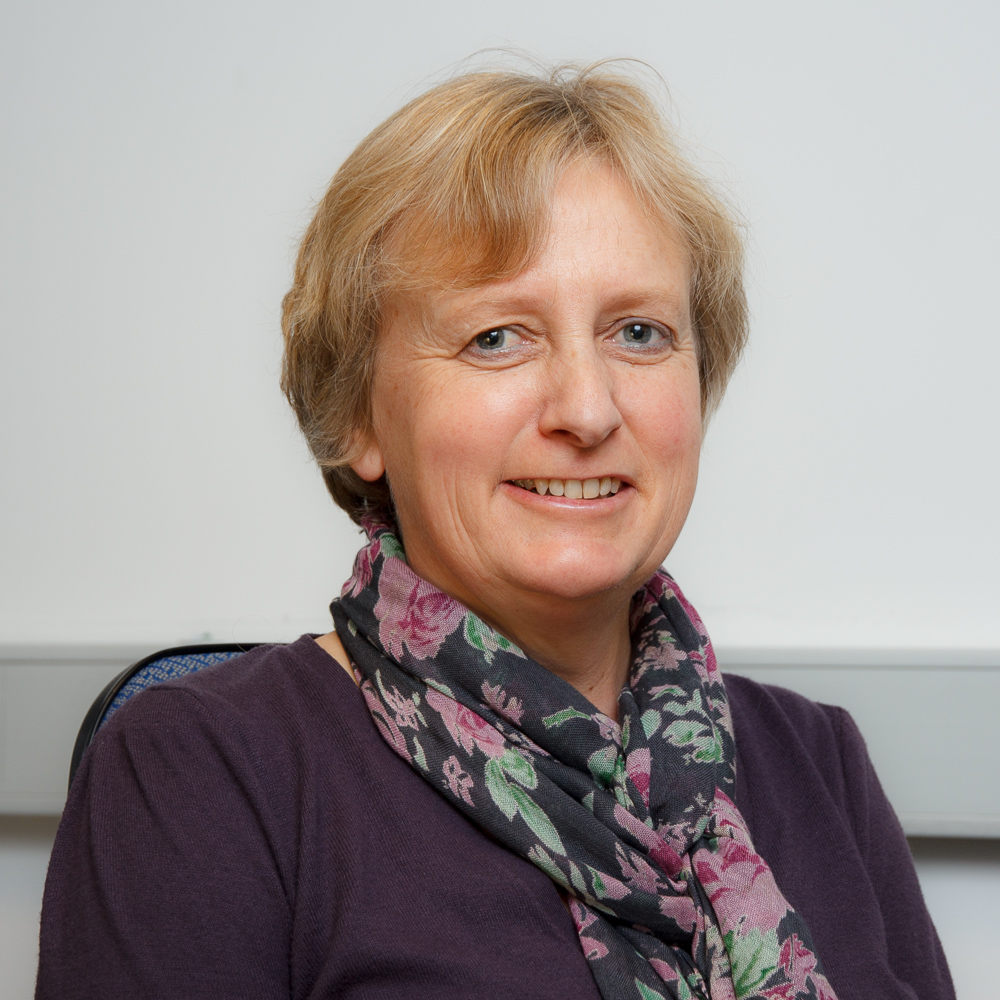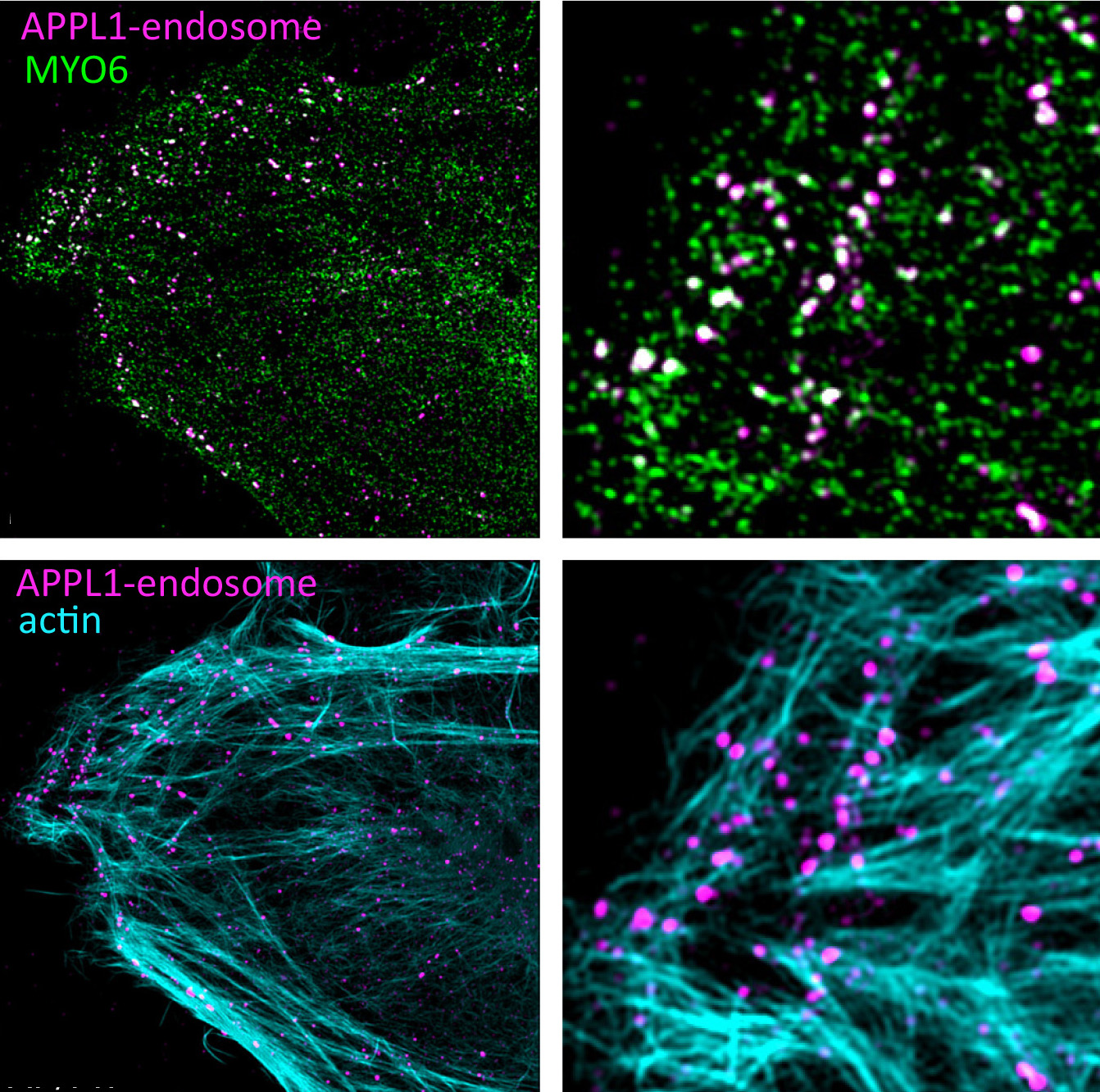
Professor Folma Buss
Position: Professor
Personal home page:
Email:
fb207@cam.ac.uk
PubMed journal articles - click here
Professor Folma Buss is pleased to consider applications from prospective PhD students.
Our work aims to determine of the cellular role(s) of myosin motor proteins in intracellular transport processes, cell signaling and membrane dynamics, and how defects in these molecular machines are linked to cancer, neurodegeneration and inflammation. Myosins are molecular motors that produce force and movement along actin filament tracks powered by ATP. The human genome contains 39 myosin genes that can be grouped into 12 different classes. Most cell types express multiple myosins - at least 12 different myosins belonging to 8 different classes- each with a distinct cellular function in cell migration, vesicle transport, regulation of actin organization and cytokinesis. Currently one of our main objectives is to understand the mechanisms that regulate motor activity and the process of cargo selection and to identify the interactome of different classes of myosin motors using functional proteomics.
Symplectic Elements feed provided by Research Information, University of Cambridge
1. Masters TA, Tumbarello DA, Chibalina, M and Buss F. Myosin VI co-ordinates Akt activation and actin reorganisation by regulating signalling endosome position and function. (2017). Cell Reports 19(10): 2088-2101.
2. Masters TA and Buss F. Filopodia formation induced by a Myosin VI mutant that moves towards the plus end of actin filaments. (2017) PNAS 114(7):1595-1600.
3. Tumbarello DA, Waxse BJ, Arden SD, Bright NA, Kendrick-Jones J, Buss F Autophagy-receptors link myosin VI to autophagosomes to mediate Tom1-dependent autophagosome maturation and fusion with the lysosome. (2012) Nature Cell Biology 10: 1024-35.
4. Brandstaetter H, Kendrick-Jones J, Buss F Myo1c regulates lipid raft recycling to control cell spreading, migration and Salmonella invasion (2012) J Cell Sci., 125, 1991-2003.
















